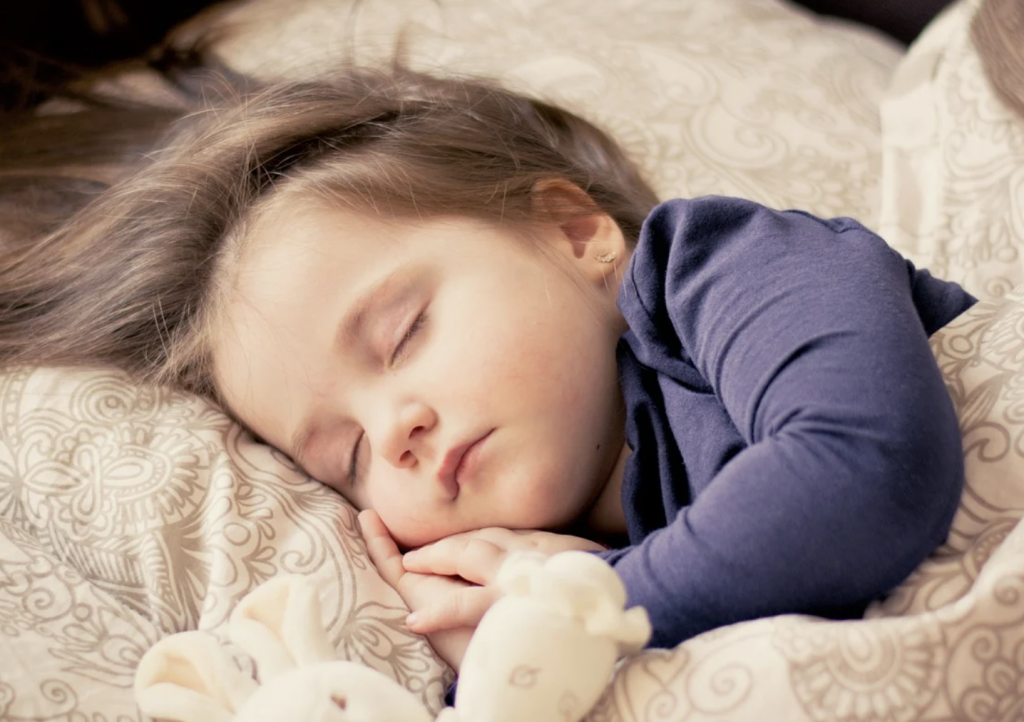Over 50,000 Kids Poisoned By Popular OTC Sleep Aid
Concerning new data shows a link between the use of popular OTC sleep aid melatonin and poisonings in kids.
This article is more than 2 years old

The act of putting kids to bed can amount to be a measurable feat. Oftentimes it can be a real struggle for parents to get their children to settle down and drift off into dreamland. For that reason, many parents rely on the popular over-the-counter sleep aid melatonin to make it easier for kids to fall asleep and stay asleep so that everyone can get a good night’s rest. And it makes sense why parents wouldn’t hesitate to utilize the popular nighttime supplement. This is because melatonin is a hormone that naturally occurs in the human body. It plays an integral role in the sleep-wake cycle and is released by the pineal gland to signal to the body that it is time to rest. Hence, the logic is that giving kids a melatonin supplement helps to aid in this naturally occurring process. Unfortunately, though, it has been linked to the poisonings of over 50,000 kids.
According to ABC7 Eyewitness News, this past year US Poison Control Centers across the nation received at least 52,000 calls from worried parents concerned over the fact that their child had ingested far too much melatonin. The calls were mostly attributed to instances where children had gotten into melatonin supply and consumed liberal amounts. In many cases, the melatonin was in the form of gummy candy.
The recent reports of melatonin-related calls to the Poison Control Centers highlight a concerning trend. In 2012, calls to poison control centers where melatonin was involved accounted for less than 1% of all calls received in a calendar year. However, in 2021 that figure rose to 5%. This prompted the Centers For Disease Control to conduct a study to explore the sudden uptick in melatonin-related calls.
Researchers believe that the increase in melatonin poisonings can be linked to a couple of different factors. First, sales of melatonin have been on the rise for quite some time. Thus, when you have more people using a product it’s inevitable that adverse instances would rise in correlation with increases in use.
However, the biggest catalyst for the recent surge in reported melatonin poisonings likely has to do with the pandemic. Even though sales and use of melatonin had been steadily increasing for quite some time, it exploded after the onset of the pandemic. This unique circumstance is what researchers believe gave many kids greater/easier access to melatonin. Dr. Karima Lelak, an emergency physician at Children’s Hospital of Michigan, explained that many individuals equate melatonin to being similar to a vitamin. And as a result, have no problem keeping it out where kids can easily get to it. “But really it’s a medication that has the potential to cause harm, and should be put way in the medicine cabinet,” emphasized Lelak. Thus, the best thing that parents can do to prevent their children from potentially being poisoned by melatonin is to simply make sure it is out of reach.
Thankfully, most instances of melatonin poisoning are not serious. This is because the human body is naturally adept at tolerating increased doses of the hormone-based drug. That being said, if you believe that your child has ingested more than the recommended dose of melatonin then they should be closely watched for signs such as vomiting and trouble breathing. Should any of these symptoms or others occur parents should immediately seek medical assistance.




